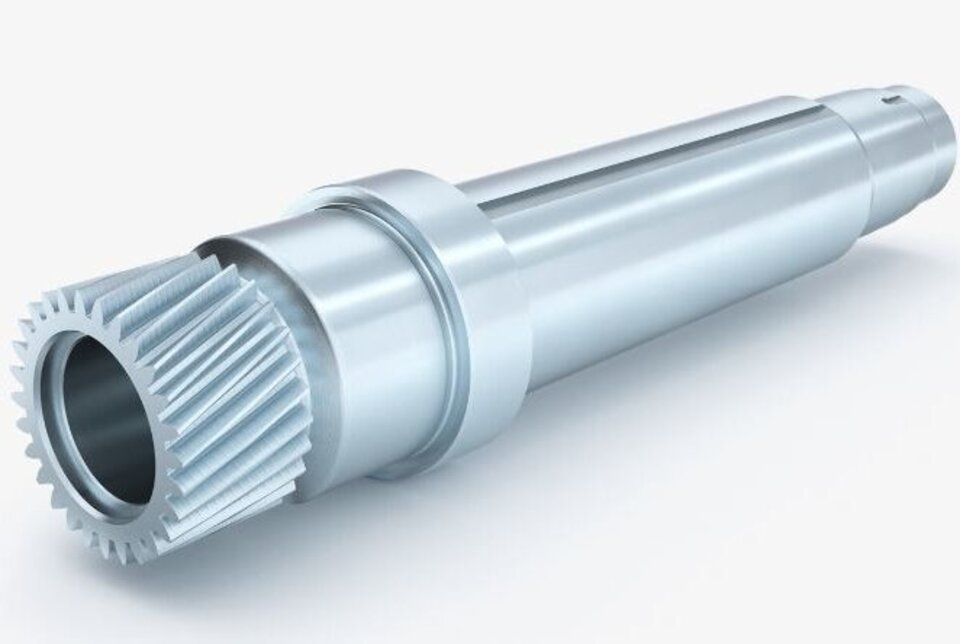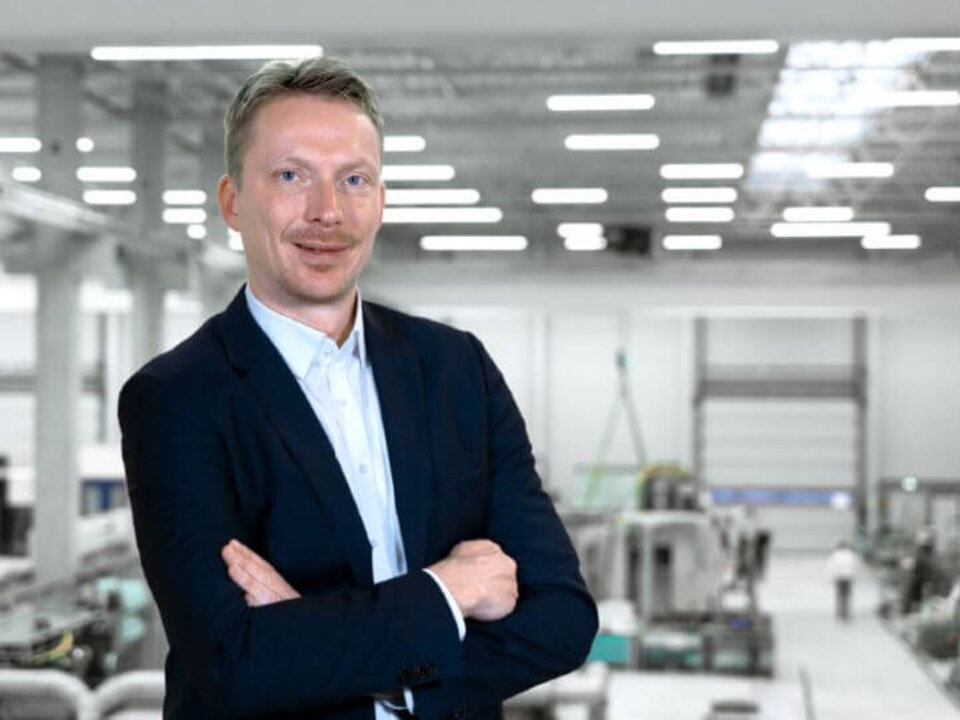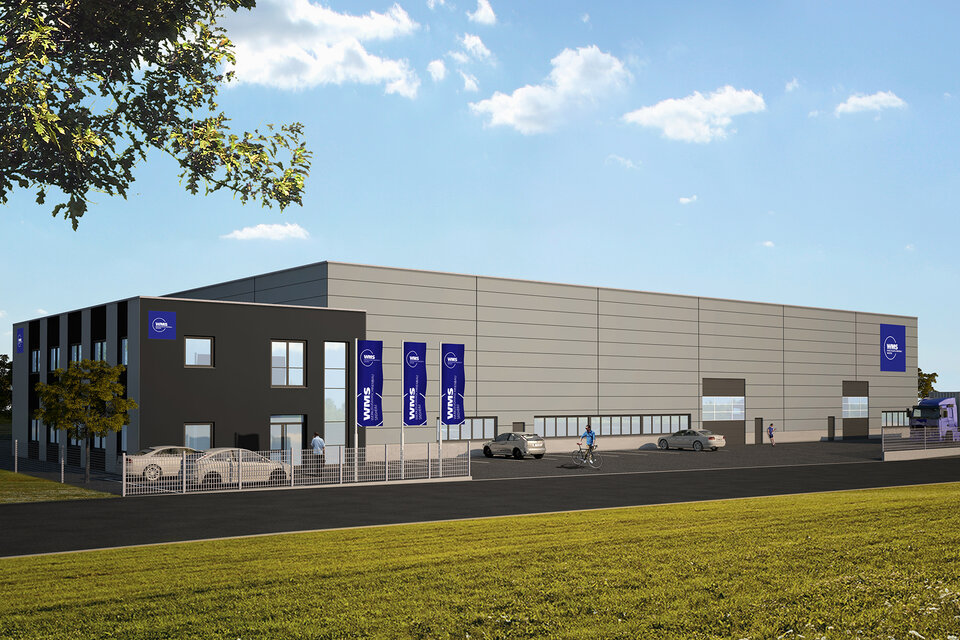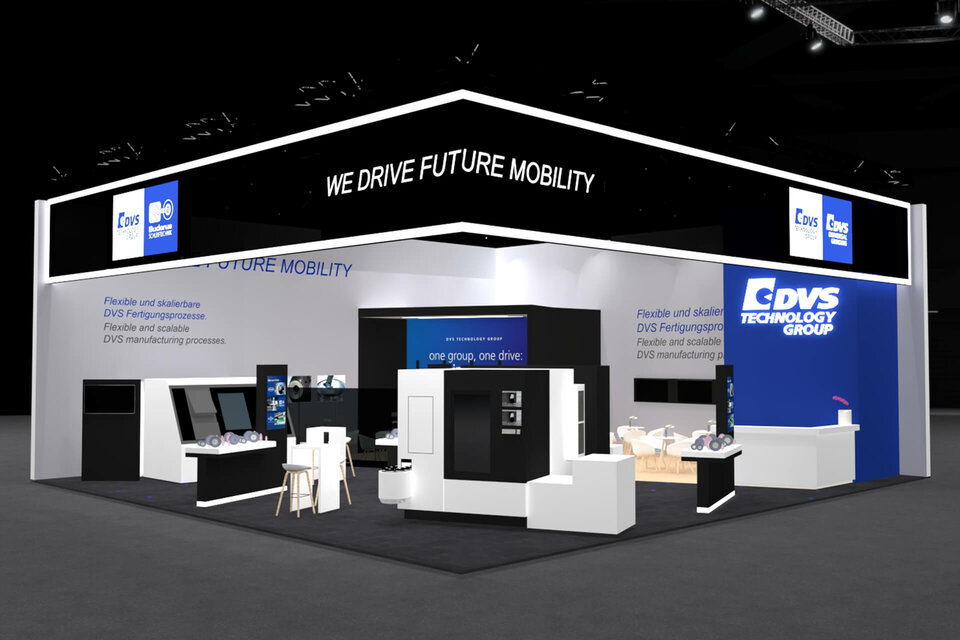Efficient complete machining of sophisticated components for electric drives
With an integrated production solution, the DVS TECHNOLOGY GROUP enables the flexible, efficient and particularly economical production of transmission shafts for electric vehicles. To this end, the machining specialists and DVS subsidiaries WMZ Werkzeugmaschinenfabrik Ziegenhain, Buderus Schleiftechnik and Präwema Antriebstechnik have pooled their expertise. The result: transmission shafts of the highest quality, which are up to 40 percent cheaper than with conventional manufacturing processes.
In order for the transmissions of electric vehicles to develop the desired high torque in all driving conditions, a very large transmission ratio is required, which necessitates high speeds. In order to provide sufficient elasticity at all speeds so that the driver can accelerate without interrupting gear changes, the e-drive must be capable of up to 15,000 revolutions per minute - around three times that of a typical combustion engine. This puts a lot of strain on the drive shaft. As a manufacturer, we are therefore facing new challenges, such as significantly lower shape and position tolerances and more precise production.
Lower shape and position tolerances also serve to avoid vibrations from moving components and thus minimize the background noise of the drive system. Because the electric motor operates almost silently, all noise emissions are much more noticeable than with a petrol or diesel engine.
Another challenge: the limited installation space. This is currently still required by the batteries in electric vehicles. The so-called e-axle consisting of electric motor, gearbox and power electronics must therefore have a particularly compact design. For the drive shaft, this means that only an extremely small tool run-out is available for gear production, for example.
Integrated production solution for e-shafts
In response to these very high requirements, we at DVS TECHNOLOGY GROUP have developed a pioneering integrated production solution for the complete machining of monobloc E-shafts, from the blank to the finished part. This enables highly economical production of these sophisticated drive components.
To this end, Pittler, Buderus Schleiftechnik and Präwema Antriebstechnik have synergistically combined their respective specialist skills.
Soft machining by Pittler
At the beginning of this production chain is the Pttler V300, an innovative multi-technology manufacturing solution that combines fully automatic turning, milling and drilling operations as well as gear cutting using the highly productive gear skiving process. This enables the complete soft machining of hollow shafts in just two set-ups on one machine. This reduces set-up, transport and idle times - and therefore the overall machining time. In addition, machining on just one machine means lower investment costs and a shorter time-to-production.
The Pittler V300 is ideal for high quantities. In its standard version, this complete machining solution is designed for an annual production of around 50,000 to 100,000 pieces. "For higher quantities, the operations can be split between two machines. Then the innovative center drive concept of our Pittler machines comes into play," explains Dr. Udo Tüllmann, Managing Director at WMZ. The result: maximum production quality with hardly any measurable reclamping errors. In an extremely short cycle time, the Pittler V300 produces a hollow shaft with over 150 complex features from a simple sawn section in series production in a cost- and process-efficient manner. "The subsequent hard fine machining can thus be carried out with optimally pre-machined workpieces," emphasizes Dr. Udo Tüllmann.
Grinding by Buderus Schleiftechnik
The hardening of the shaft is followed by the first step of hard finishing. Buderus Schleiftechnik's high level of expertise forms the basis for achieving the lowest possible shape and position tolerances and thus the high surface quality expected of the shaft. The company offers several highly innovative solutions for the E-shaft which, depending on the desired quantity and range of shafts to be machined, enable optimum production in terms of economy and quality. Vibration-damping machine beds made of granite guarantee maximum dynamic and thermal machine stability and ensure constant reproducibility of the desired production qualities.
Gear honing with Präwema drive technology
The final link in the DVS process chain on the way to the ready-to-install hollow shaft is gear honing.In recent years, DVS subsidiary Präwema has further developed a technology that enables lower friction losses during gear hobbing. This "power honing" is now standard in large parts of the international vehicle industry."Honed gear surfaces are a decisive factor in reducing noise and lowering the energy consumption of electric vehicles," emphasizes Jörg Schieke, Managing Director at Präwema.
Economic efficiency with maximum precision
By precisely coordinating all process steps, the integrated manufacturing solution developed by the DVS TECHNOLOGY GROUP enables the production of high-quality rotor shafts that meet all the requirements that electric vehicles place on a transmission.With this process, the DVS Group also enables highly efficient production with a significant reduction in unit costs.In some cases, the costs are up to 40 percent lower than those of conventional production.
Would you like to find out more about rotor shafts for electric motors or about the companies in the DVS Group? Or would you like to contact us directly? We are at your disposal.






